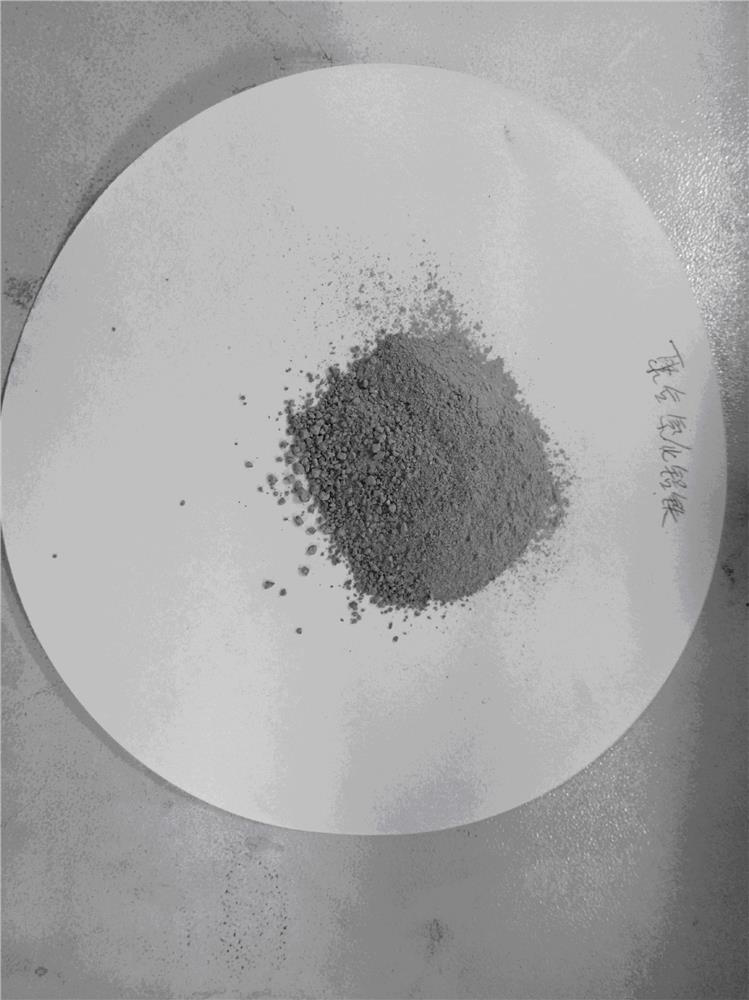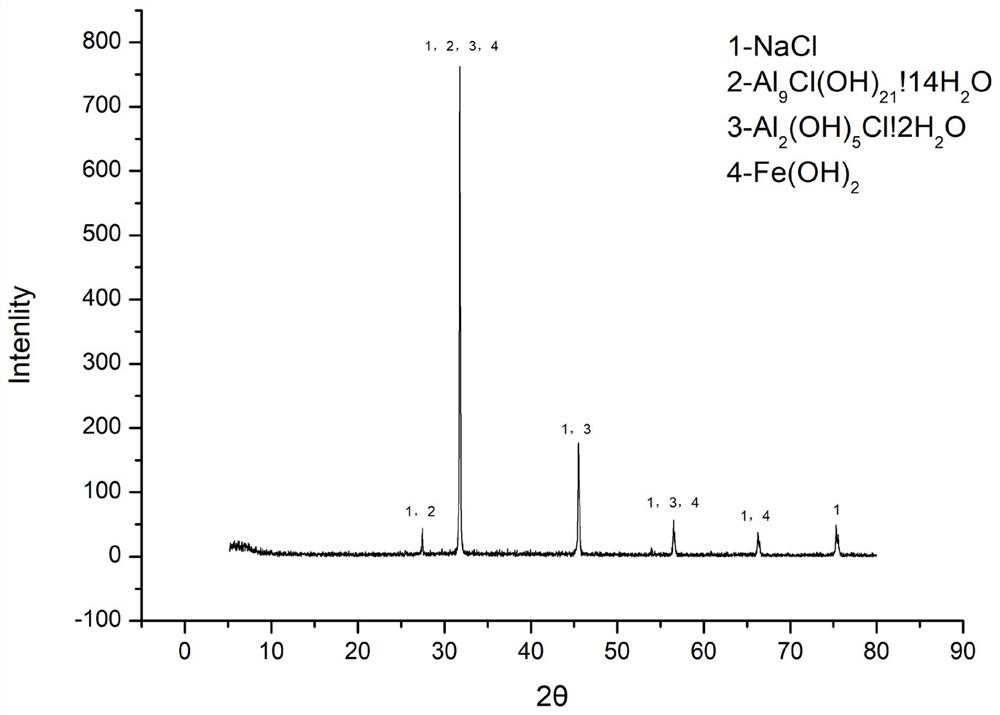A method for preparing aluminum-iron flocculant from red mud
A flocculant, red mud technology, applied in chemical instruments and methods, flocculation/sedimentation water/sewage treatment, iron compounds, etc., can solve the problems of strong acidity of leaching residue, complex process, affecting flocculation effect, etc.
- Summary
- Abstract
- Description
- Claims
- Application Information
AI Technical Summary
Problems solved by technology
Method used
Image
Examples
Embodiment 1
[0031] Stir and dissolve the mixed leaching acid and water according to the mass ratio of 1:3-5, the dissolution condition: the temperature is 50 o C-90 o C, the stirring intensity is 450-750r / min, the stirring time is 30-90min, and the leaching solvent is obtained after complete dissolution; the mixed polymeric acid and water are stirred and dissolved according to the mass ratio of 1:2-3, and the dissolution conditions are: temperature 20 o C-50 o C, the stirring intensity is 300-600r / min, the stirring time is 90-180min, and the polymerization solvent is obtained after completely dissolving; the water washing residue and the leaching solvent are mixed in a beaker, and the solid-liquid mass ratio is 1:6-7, the reaction temperature is 80 o C-100 o C. Stir for 30-90min under the condition of stirring intensity of 250-400r / min. After the stirring is finished, the solid-liquid separation obtains leaching tailings and pickling solution; the washing solution is added dropwise to...
Embodiment 2
[0033] Stir and dissolve the mixed leaching acid and water according to the mass ratio of 1:5-7, the dissolution condition: the temperature is 50 o C-90 o C, the stirring intensity is 450-750r / min, the stirring time is 30-90min, and the leaching solvent is obtained after completely dissolving for later use; the mixed polymeric acid and water are stirred and dissolved under the condition that the mass ratio is 1:3-4, and the dissolution condition is temperature 20 o C-50 o C, the stirring intensity is 300-600r / min, the stirring time is 90-180min, and the polymerization solvent is obtained after complete dissolution. Mix the washed slag and the leaching solvent in a beaker at a solid-to-liquid mass ratio of 1:4-6 and a reaction temperature of 80 o C-100 o C. Stir for 30-90min under the condition of stirring intensity of 250-400r / min. After the stirring is finished, the solid-liquid separation obtains leaching tailings and pickling solution; the washing solution is added drop...
Embodiment 3
[0035] Stir and dissolve the mixed leaching acid and water according to the mass ratio of 1:7-9, and the dissolution condition is that the temperature is 50 o C-90 o C, the stirring intensity is 450-750r / min, the stirring time is 30-90min, and the leaching solvent is obtained after completely dissolving for later use; the mixed polymeric acid and water are stirred and dissolved under the condition that the mass ratio is 1:3-4, and the dissolution condition is temperature 20 o C-50 o C, the stirring intensity is 300-600r / min, the stirring time is 90-180min, and the polymerization solvent is obtained after completely dissolving; the water washing residue and the leaching solvent are mixed in a beaker, and the solid-liquid mass ratio is 1:3-4. temperature is 80 o C-100 o C. Stir for 30-90min under the condition of stirring intensity of 250-400r / min. After the stirring is finished, the solid-liquid separation obtains leaching tailings and pickling solution; the washing solutio...
PUM
 Login to View More
Login to View More Abstract
Description
Claims
Application Information
 Login to View More
Login to View More - R&D
- Intellectual Property
- Life Sciences
- Materials
- Tech Scout
- Unparalleled Data Quality
- Higher Quality Content
- 60% Fewer Hallucinations
Browse by: Latest US Patents, China's latest patents, Technical Efficacy Thesaurus, Application Domain, Technology Topic, Popular Technical Reports.
© 2025 PatSnap. All rights reserved.Legal|Privacy policy|Modern Slavery Act Transparency Statement|Sitemap|About US| Contact US: help@patsnap.com



